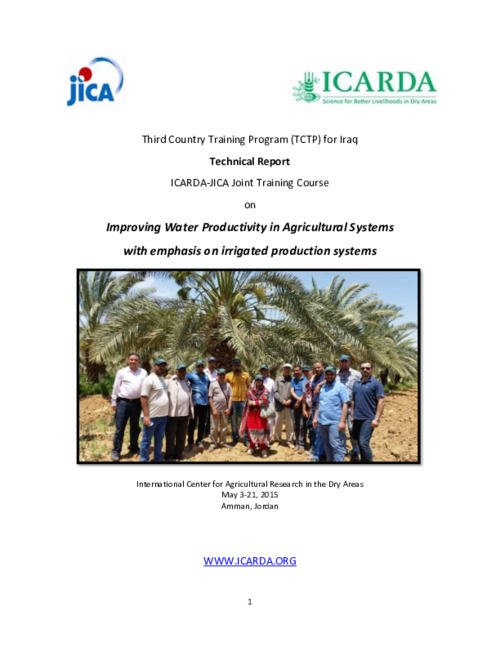Improving Water Productivity in Agricultural Systems with emphasis on irrigated production systems
Abstract
Water is the major limiting factor for agricultural production in the dry areas of Central and
West Asia and North Africa (CWANA). Agriculture accounts for around 80% of water
consumption in the region. However, the rapidly growing population, industrialization, and
urbanization will lead to reallocation of water increasingly away from agriculture to other
sectors. On the other hand, high population growth rates require a continuous increase in
agricultural production.
There are few opportunities for capture of new water resources, and there is a tendency
toward non-sustainable over-exploitation of existing sources. Therefore, sustainability of
agricultural production depends on conservation and appropriate allocation and management
of the scarce water resources in the region. Improving the efficiency of water use through
proper crop selection, cropping pattern, cultural practices, and improved management
techniques is essential to boost on-farm productivity either under rainfed or irrigated
conditions. Another important approach towards improving water use efficiency is to link onfarm
issues at the watershed level, applying integrated natural resource management
methods.
ICARDA's mission is to improve the welfare of livelihoods through agricultural research and
training to increase the production, productivity, and quality of food, while preserving or
improving the resource base. ICARDA's training courses are designed to improve the
capabilities of scientists and technicians in national agricultural research systems (NARS) in
developing countries to conduct research independently, and to foster transfer of technology
and address issues related to farmers' decisions in adopting or rejecting new technologies. To
this end, ICARDA has organized this course

